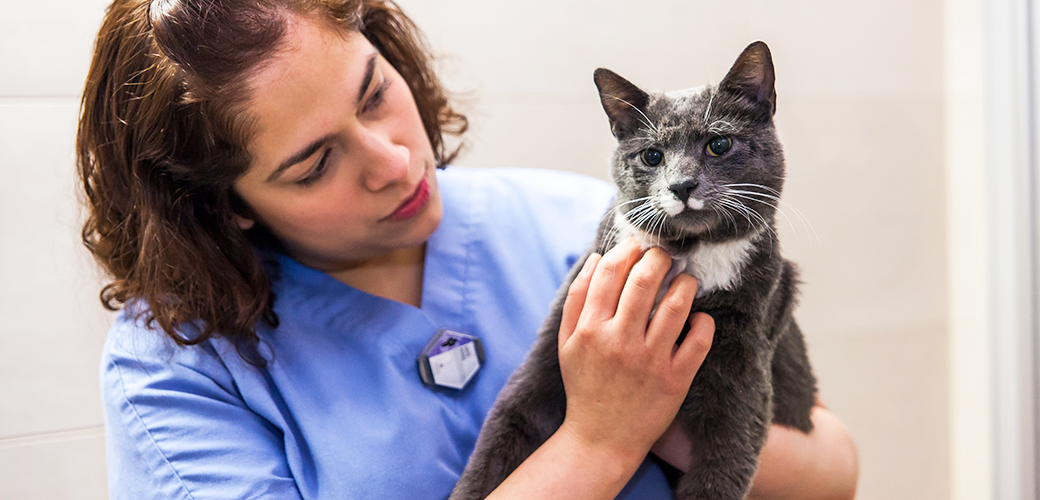Cats are often independent and self-sufficient. Cats, on the other hand, require some support when it comes to taking care of their own well-being. As opposed to other animals, cats require little care and attention, however they are prone to a variety of health problems. Therefore, becoming familiar with common diseases will assist you in recognising the early signs and symptoms of the most prevalent health problems that cats experience.
If you have a cat or are thinking about obtaining one, you should be aware of the numerous health problems that these felines are prone to.
- Lower Urinary Tract Disease is the most common kind.
FLUTD, also known as Feline Lower Urinary Tract Disease, is a condition that affects the cat's urethra and bladder. It is caused by a variety of causes that impact the cat's urinary tract. Your cat may suffer agonising discomfort if the problem is left untreated. As a result, if you see any of the indicators listed above, you should call your veterinarian immediately. FLUTD is a serious health problem that affects cats and can be deadly if not treated in a timely manner.
FLUTD signs and symptoms
- Not going to the bathroom in the litter box.
- Behavior that is irritated.
- While peeing, I was squeezing my bladder.
- There is a lack of appetite.
- There is blood in the pee.
- Urination is excruciatingly painful.
This problem can also result in urethral obstruction, which prevents the cat from being able to urinate properly. Some of the most common causes of such illnesses are a blocked urinary tract, interstitial cystitis, bladder stones, and malignancy. Therefore, don't dismiss this situation lightly. If you see any of the indicators listed above, take your cat to the vet.
- Fleas
Fleas are something that every cat parent should be familiar with. Once these pests have taken up residence on your cat, removing them becomes a time-consuming operation. Cats with flea infestations scratch themselves and lose their hair. Furthermore, you may observe some bald spots on the cat's coat where he has licked himself to death. Its therapy consists of year-round flea and tick preventative medications. A popular flea and tick medication is Frontline Plus, which is highly recommended by veterinarians.
- Vomiting and Diarrhoea
Vomiting and diarrhoea are common side effects of eating a strange diet. Your cat may experience this if she eats anything that her stomach is unable to process properly. However, persistent vomiting and diarrhoea that lasts for more than one or two days should be taken seriously and should be treated as such.
- Dental Illnesses
You should consult your veterinarian if your cat is experiencing food difficulties, foul breath, or is unable to chew correctly. It is also possible for cats to have foul breath due to dental disease or digestive difficulties. It is usually advised that you wash your cat's teeth on a regular basis and take your cat to the veterinarian dentist for a monthly checkup. It is critical to keep your cat's dental hygiene in good condition. As a result, we always advise pet parents to purchase Oral Hygiene solutions for their cats in order to prevent any dental issues.
- Infectious Diseases
Cats are susceptible to respiratory illness, which is caused by a variety of reasons including their environment, pollution, and other pollutants. Early indicators of infection include watery eyes, a runny nose, a fever, sores in the mouth, and coughing up blood. If you have a respiratory infection, there is very nothing you can do to help yourself. As a result, a simple check-up with your veterinarian on a regular basis is adequate.
Feline panleukopenia is a disease that affects cats on a regular basis. Cats suffering from this fever exhibit symptoms such as fever, diarrhoea, tiredness, and loss of appetite. Because there is no effective therapy for this condition, the only thing that can be done is rest, hydration consumption, and a healthy diet.
- Kidney Disease
Cats with kidney disease are extremely rare; it generally happens in cats that have other chronic illnesses. Cats suffering from bladder stones, tumours, infections, and high blood pressure are at greater risk of contracting the disease. Age is also a significant component in this case, as renal illness is more common in older cats.
- Obesity
Obesity in cats is becoming a rising source of worry these days. As a result, your cat is more susceptible to joint discomfort, liver disorders, and diabetes than before. Your cat's bones and ribs may be felt without applying excessive pressure, which indicates that it is at a healthy weight for his or her breed.
If your cat is overweight, on the other hand, you must reduce the amount of food she consumes to prevent her from becoming obese. Furthermore, keeping a healthy weight is much easier by following an exercise regimen.
- Cancer
Unfortunately, cats are not immune to the development of cancer. The feline leukaemia virus and lymphosarcoma are the most common cancers found in cats. Aside from that, squamous cell carcinoma is rather prevalent in a certain breed of cat.
Lump or bumps on the skin, swellings, recurrent infections, lethargy, lameness, vomiting, diarrhoea, and weight loss are all frequent cancer-related signs and symptoms. Having difficulty breathing, urinating, or defecating may also be a result of this condition.
Cats appear to be undemanding creatures on the outside, but on the inside, they're a mushy mass of mush. It is essential that you pay close attention to your cat's nutritional and physical requirements in order for her to live an extended and healthy life. If the cat is fed a nutritious food and is kept physically active, she will have a lower probability of contracting a sickness than she would otherwise.


0 Comments